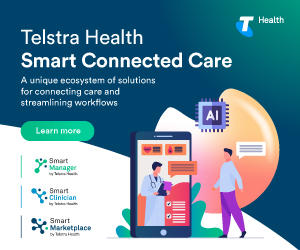Have your say on the national digital health plan
It’s time to have your say on Australia’s national digital health strategy, with the Australian Digital Health Agency (ADHA) releasing its draft framework of action and inviting feedback over the coming month.
The drafts framework of action, Australia’s National Digital Health Strategy – Safe, Seamless and Secure, outlines a vision for a more technology-enabled healthcare sector by 2022.
It proposes the development of national blueprints for a secure messaging, interoperability, health technology, health apps and medicines, the role of real-time prescription monitoring, end of life care and residential aged care, along with plans make the My Health Record a more innovative platform for the Australian health sector.
According to the ADHA, the benefits of prioritising national-level digital health activity which will result in:
- Less hospital admissions
- Fewer adverse drug events
- Reduced duplication of medical tests
- Better coordination of care for people with chronic and complex conditions, and
- Better informed treatment decisions.
The My Health Record framework
The framework adds further scope to the initial My Health Record plan released last year, detailing seven priorities. These include further details to the My Health Record Expansion Program including information about My Health Record ‘MyHR’ which is planned to roll out by December, along with opt-out arrangements.
The plan also explains why the government is encouraging clinicians to embrace MyHR, and why the platform will become a hub for innovation, enabling the development of new health apps and tech tools, with scope to support further innovations in precision medicine and genomics.
New interoperability strategy
Importantly, the ADHA has announced a national interoperability strategy as part of the framework, an issue that has become an area of increasing concern within the healthcare sector. By the end of 2018, a public consultation on draft interoperability standards will confirm an agreed vision and roadmap for implementation of interoperability between all public and private health and care services in Australia.
This is set to cover agreed base-level requirements for using digital technology when providing care in Australia, with improvements in data quality and interoperability delivered through adoption of clinical terminologies, unique identifiers and data standards. By 2022, the first regions in Australia will showcase comprehensive interoperability across health service provision.
Supporting innovation in healthcare
The framework details plans to rollout a new ‘innovation showcase’ in an effort to support and recognise digital health innovation through awards and publishing case studies. Meanwhile, a new digital health services endorsement framework will support the development of the next generation of evidence-based digital health apps and services.
The ADHA also details plans to encourage and support innovation in app development that helps achieve further connectivity and interoperability, including electronic prescribing, secure messaging and consumer sources such as fitness devices.
Driving the next generation of digital health
The framework also details a new digital health training curriculum rollout within universities, educational institutions and health associations, to support the next generation of healthcare providers in understanding how technology can be leveraged to enable better healthcare.
To optimise on efficiency and streamline digital strategies, there are also plans to rollout a national provider addressing service, capability for real-time prescription monitoring, plus a national health tech plan that aligned closer with other digital health initiative such as My Aged Care, Mental Health Gateway, GovPas, MyGov, the NDIS, the National Cancer Screening Registry and claims and payment processes.
You can submit feedback to the survey form until Friday 6 April 2018.









